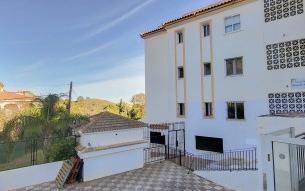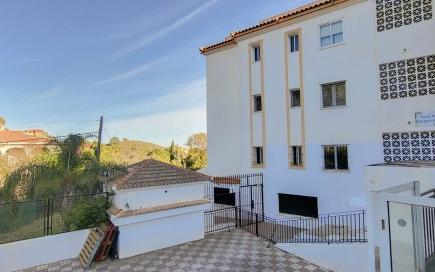
Since 2016, there have been around 300,000 British people living in Spain. Further still, the number of Brits over 65 moving to Spain has more than doubled over the past decade.
The British are still, and will continue to move for the warmer climate, relaxed lifestyle and the tasty food that life in Spain can offer.
For many parents, the biggest concern about moving abroad is their children's education and schooling. That's why it's really important to have an understanding of the educational systems in Spain before you move.
It's not easy to get to grips with the Spanish educational system. But you don't have to go it alone. Keep reading to find out everything you need to know to ensure your child has a great education in Spain.
The Quality of the Educational Systems in Spain
There have been significant improvements in the educational performance of schools in Spain over the past few decades. This is as a result of increased education spending and a number of important educational reforms.
The educational standards across maths, reading comprehension, and science are above the average for OECD countries. While Spain performs well in academic achievement, the country has an outstanding record when it comes to encouraging a sense of belonging at the school.
The educational system is the responsibility of the Ministry of Education, Culture, and Sport. However, it's mostly managed by one of the autonomous regions in which the school is located.
How to Choose a School for Your Children
If you're interested in sending your child to a state school, you need to know that children are allocated to schools based on catchment area. Therefore, it's important to consider this when you're choosing where to settle.
Furthermore, if you're located in one of the regions with a co-official language (e.g. Catalonia) alongside Spanish, some academic subjects may be taught in the respective language of the region rather than Spanish.
Before you purchase a property in Spain, it's always important to investigate the quality and type of schools that exist in the area.
There are four main types of school in Spain. These include the following:
- Local (standard state school)
- Private (fee-paying school)
- Bilingual (co-official language school / English-Spanish school)
- International school (e.g. English-language)
The local education school between the age of six to sixteen years old is compulsory and free. At the end of which, a certificate of education is received by every student who completes schooling.
However, parents may be required to pay for additional equipment (e.g. books or uniform).
The Stages of Education in Spain
There are four stages of education in Spain. They include the following:
- Nursery and pre-school
- Primary - compulsory
- Compulsory secondary education
- Upper-secondary education
While nursery education and upper secondary education is optional, every child is required to undergo primary and secondary education. Let's take a closer look at the different stages of education in Spain.
Nursery
This stage lasts up to six years.
It includes the first-stage nursery, which is provided for children between the age of three months to three years old. The costs for this education are not covered by the state.
The second-stage of nursery includes schooling for ages three to six years old. This free to residents in Spain.
By sending your child to a nursery you'll allow your child to integrate quickly into the new culture and environment.
Primary School
When children turn six they are required to attend primary school until the age of twelve years old.
At this level of education, children learn a number of the following subjects:
- Maths
- Spanish language and literature
- Natural sciences
- Social sciences
- Arts
- Foreign languages
- Physical education
The classes are made up of pupils of a wide range of abilities. You can also expect your child to be assigned homework. Towards the end of primary education, children are expected to undertake examinations.
The grading system is as follows:
- Insufficient (IN)
- Sufficient (SU)
- Good (BI)
- Very Good (NT)
- Excellent (SB)
Children that do not meet the standards of schooling may be required to repeat a year before they are permitted to move to the next stage of education.
Compulsory Secondary Education
Once children have completed primary school, the next stage is compulsory secondary education. This lasts from the age of twelve to sixteen years old.
There is a wide range of types of schools available that include state schools, private schools, and state-funded private schools.
There have been many changes to the secondary school education system in recent years that have brought the Spanish system in line with the British style. That means less learning of facts and more project work.
The curriculum at secondary school includes many of the same subjects as primary school. However, there are additional optional choices that include a second foreign language, music, and technology.
Again, if a student does not reach the standard in assessments, they may be required to repeat a year. After the secondary education stage is completed, students are awarded a Graduate of Secondary Education Certificate. This allows students to move onto the next stage of upper-secondary education in Spain.
Upper Secondary Education
It is also possible to continue education after secondary education with upper secondary education. This takes place at the age of sixteen. However, this is not compulsory.
The Bachillerato
This similar to the England and Wales A-Levels. This is usually required in order to be accepted by a university. However, many students are asked to complete an additional university entrance exam.
Unlike A-levels, in which students select three to four subjects, students in Spain are required to study the core subjects of Spanish, a foreign language and history. Additionally, students can select from a specialised area, which includes the options of social sciences, sciences and engineering and natural and health science.
Ciclos Formativos
This refers to the vocational studies that are available to students too. You can choose from a wide range of training programmes from electrical work to social work. These programmes last for up to four years.
Education Systems in Spain: Are They Right for Your Family?
There are many reasons to move to Spain. With the top-quality educational systems in Spain, that's just another reason to up and leave to start your life in the sun.
However, it's important to carefully consider whether the Spanish education system is right for you and your kids. There are so many options available, you can surely find the one that suits your children.
If you're interested in moving to Spain, check out our website for property listings today!

 English
English Español
Español Deutsch
Deutsch Français
Français Svenska
Svenska Nederlands
Nederlands Italiano
Italiano Norsk
Norsk Русский
Русский


































